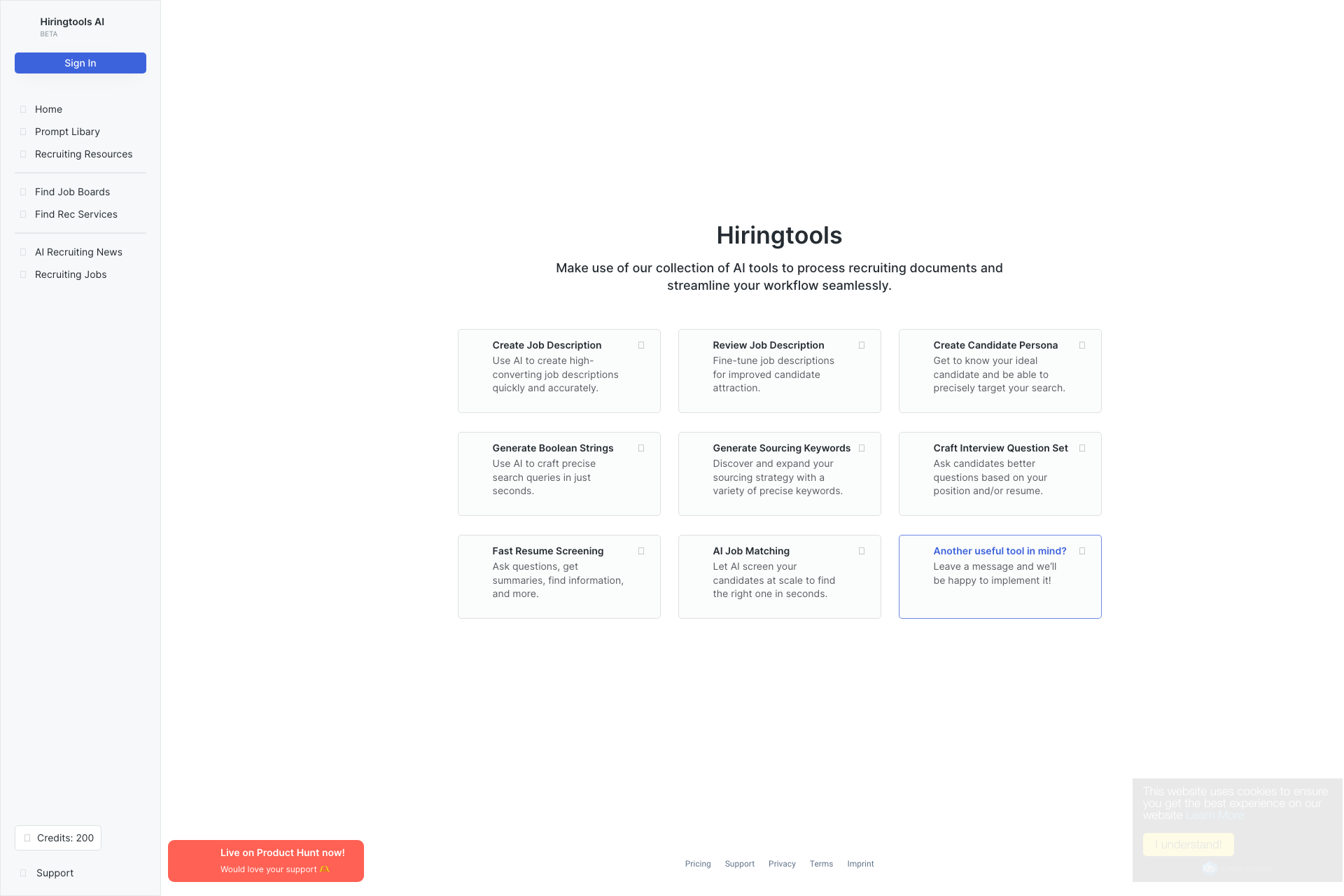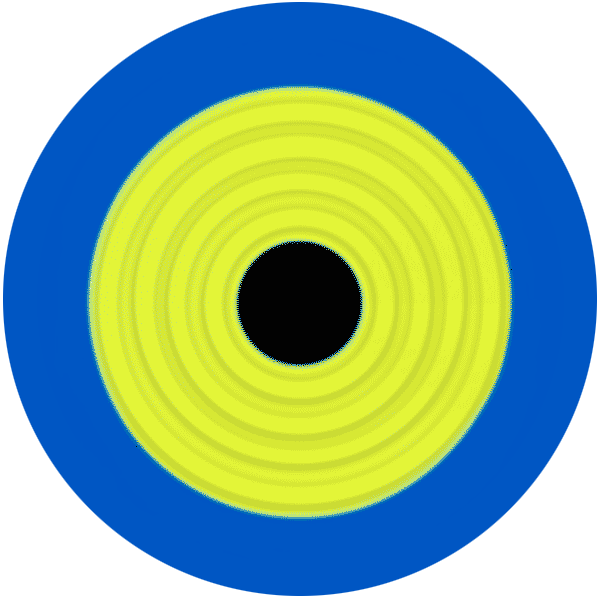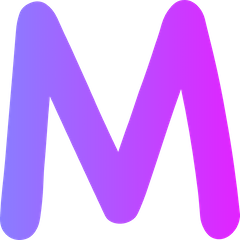Hiringtools AI
Our platform is an all-in-one AI-powered recruiting solution that streamlines the hiring process. Perfect for recruiters and entrepreneurs who want to manage and simplify their own recruitment efforts.

Key Features of Hiringtools AI
AI-Powered Candidate Screening
Utilizes advanced algorithms to quickly assess and shortlist candidates based on job requirements.
Automated Interview Scheduling
Streamlines the scheduling process, saving time for both recruiters and candidates.
Data-Driven Insights
Provides analytics and reports to help improve hiring strategies and decision-making.
Customizable Job Listings
Allows users to create tailored job postings that attract the right talent.
Seamless Integration
Easily integrates with existing HR tools and platforms for a cohesive workflow.
User-Friendly Interface
Designed for ease of use, making it accessible for recruiters of all tech levels.
Frequently Asked Questions about Hiringtools AI
Related Products about Hiringtools AI

It is a compact AI tool designed to generate SMART goals for you based on your responses to a straightforward questionnaire. Its purpose is to facilitate personal goal-setting in a simplified manner.

Enginn Studio gives a voice to all your characters, from prototyping to production. Voice 100x faster in 30 languages. Browse thousands of voices or craft your own ones with VoiceMaker.

With discursoboda.com you can create wedding speeches with the help of artificial intelligence. Complete the form with all the information and receive 4 unique wedding speeches in your email.

The Data Poets is a multiplayer platform where images of places are transformed into machine-poems. Folks can share and discuss their experiences, emotions and perspectives on urban spaces through these poetic interpretations.

LeetCard is a mobile app designed to enhance problem-solving skills and excel in interviews, featuring AI-powered hints, personalized study plans, and streamlined organization to maximize learning efficiency and effectiveness.

This tool for artists, engineers, and researchers is built for rapid prompt development: quickly generate hundreds of outputs, try variations, find nearby concepts, and chain outputs into new prompts.

